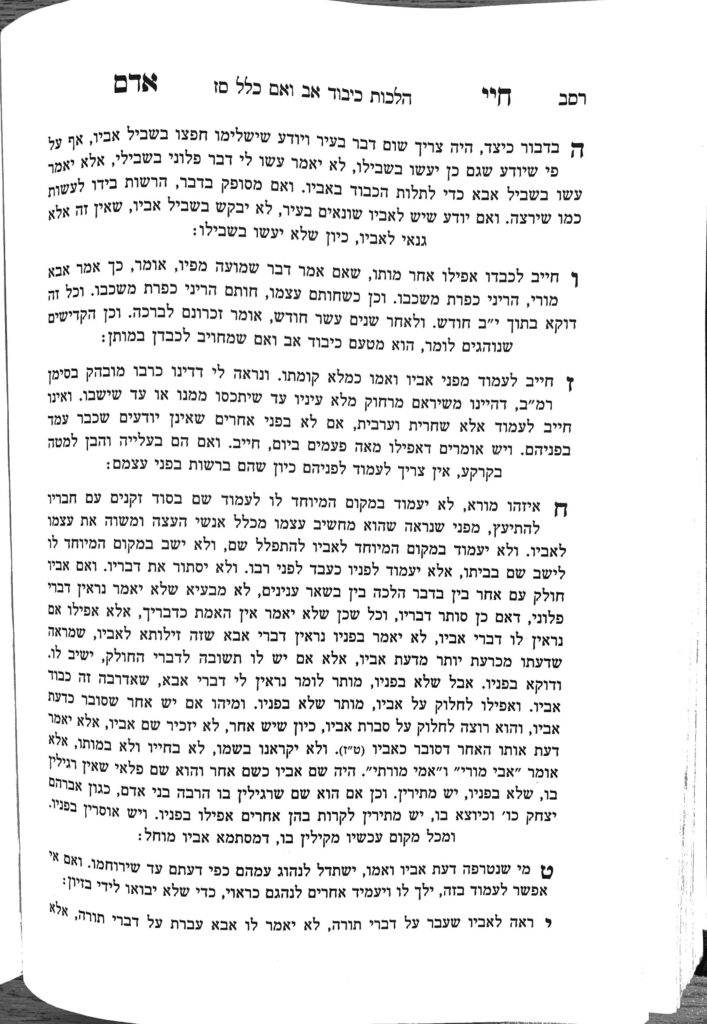We are beginning siman 8. The Chayei Adam will discuss the mitzvah of morah, fear. In the same way the Torah gave us the mitzvah of kibbud, the Torah gives us the mitzvah of morah as well. Primarily, kavod primarily refers to mindsets and actions a person should do, while morah refers to actions a person must refrain from doing. When dealing with an individual for which one has tremendous awe, they would refrain from certain actions, and this idea will guide us through the siman.
The Chayei Adam writes that any actions a person would not do to chashuv people should not be done to their parents. For example, if the father has a specific place where he gathers with others for eitzah or discussion, a child should not join the group. Even if the child does not add his opinion, being present indicates that he feels he should be a part of the group. By indicating that he is able to discuss the issues his father is discussing, he is equating himself to his father, and is considered a lack of morah. One would not sit in a meeting of Rav Moshe Feinstein, Rav Yaakov Kaminetsky, and other gedolim, as though they also had an opinion on the matter at hand; one should have the same attitude vis a vis his parents.
The Chayei Adam continues, and writes that a child should not use their parent’s special makom for tefillah. Similarly, they should not sit where their parents normally sit. The Chayei Adam stresses that the issue is not the chair, but the place. If there is a special chair for a parent, a child should not use it even if it is out of place.
A child should stand in awe of their parents like a servant in front of their master. They should be ready to serve their parents at all times. This awe is the basic definition of morah.
A child should not disagree with a parent’s opinion. When a parent is having a discussion with someone else, if a child has awe, they will realize that the parent has more knowledge and experience, and will hesitate before correcting. Similarly, if one were speaking to Rav Moshe Feinstein, and thought that he made a mistake, they would think twice before correcting the Reb Moshe, and assume that Reb Moshe is correct, and they are the one who is incorrect. Similarly, one should not correct a parent.
Summary
- Morah is defined as any actions a person would not do to chashuv people should not be done to their parents.
- Thus, one should not stand in their place, join their conversations, sit in their place or in their chair, nor correct them in conversation.



